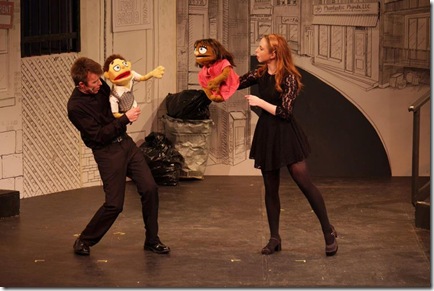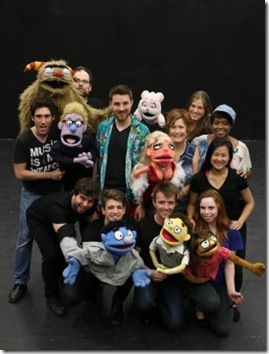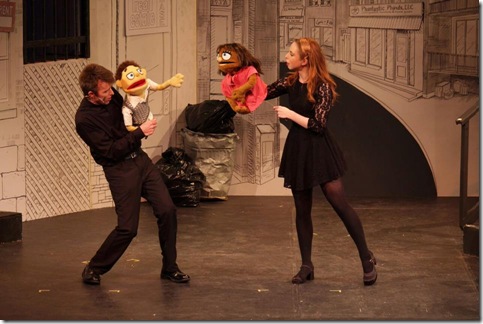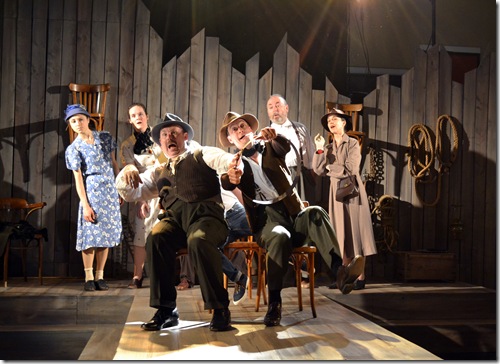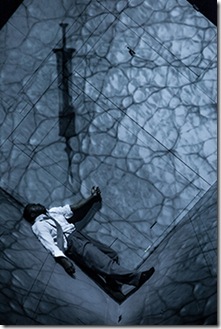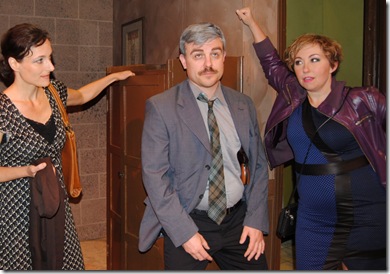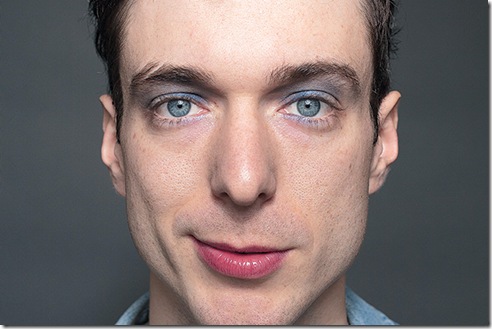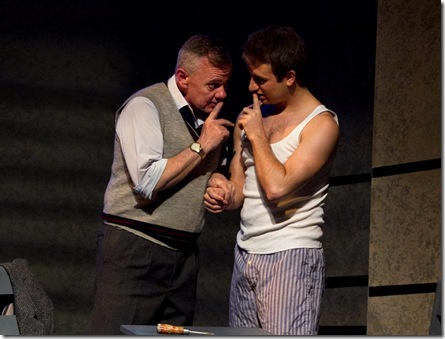Avenue Q is a winner in Every Way.
Photo: Courtesy of Allan Mackey.
The cheerful, uninhibited ribaldry of Avenue Q may well jolt some theatregoers. But they’re more likely to be disarmed by this essentially sweet-natured musical satire about life in a run-down apartment building on the wrong side of the tracks.
Ottawa’s Toto Too Theatre’s new production is a triumph — and a notable one. After all, this enterprising local company could have stumbled badly when it decided to tackle this long-running but challenging Broadway hit.
The show’s creators — Robert Lopez, Jeff Marx and Jeff Whitty — have created an infectious combination of witty word-play and toe-tapping music. They have stocked their comic playground with a collection of engaging and generally endearing neighbourhood types. But we’re also getting a mischievous, albeit affectionate, send-up of Sesame Street here, along with some R-rated moments that are clearly not intended for the moppet brigade. That means that puppets — and, more specifically their effective use on stage — are integral to the success of any production of Avenue Q. Without effective puppetry, the material falls flat.
